2024.01.25
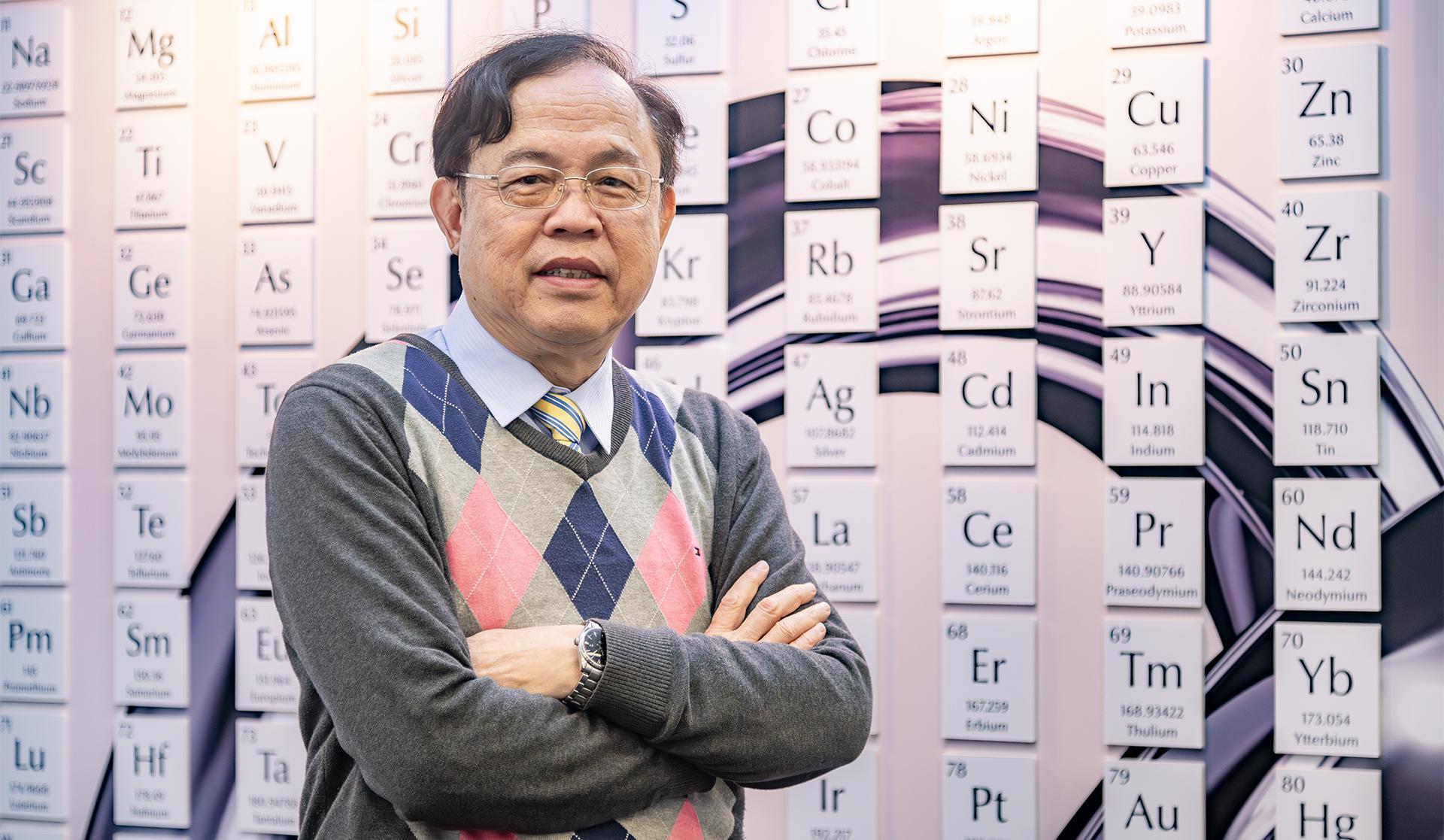
Chair Professor Jien-Wei Yeh (葉均蔚) from NTHU's Materials Science and Engineering pioneered a groundbreaking field known as “Metal Mixology.”
Chair Professor Jien-Wei Yeh (葉均蔚), renowned as the “Father of High-Entropy Alloys” at National Tsing Hua University's (NTHU) Department of Materials Science and Engineering, ranked the top position in Taiwan's 2022 Scientific Impact rankings, according to Stanford University's “World's Top 2% Scientists” list. Globally, he holds the second position and is the leader among Chinese scientists in the “materials” field in 2022.
Yeh's work challenged the conventional belief that higher concentrations of alloying elements make alloys brittle. He demonstrated that blending five or more elements might create alloys with superior strength, lightness, ductility, and resistance to high temperatures and corrosion. His innovation marked a milestone in materials development, offering numerous element combinations for scientific exploration and development.
The Stanford University team has been analyzing the research performance of 9.6 million scientists worldwide since 2019, utilizing the largest citation database, Scopus. They consider the total citation count, the H-index, and six other key indicators. They published the “World's Top 2% Scientists” list, covering both “lifetime” and “single-year” scientific influence rankings.
In the “Single Year Scientific Influence Rankings” released by the Stanford University team in October 2023, global scientists' scientific influence in the preceding year, 2022, was evaluated. Professor Yeh ranked in the 152nd position globally and clinched the number-one spot in Taiwan.
Professor Yeh also ranked second position in the 2022 global scientific influence rankings in the field of materials, surpassing many materials scientists leading large research teams with substantial budgets.
Yeh humbly said that, with 294 published papers and a total citation count of nearly 44,000, his research team consists of just over 20 members, predominantly master's students, operating on a “small-scale” basis.
He emphasized that Stanford University's evaluation places greater emphasis on the “quality” rather than the quantity of papers, focusing on the originality and influence of the research, which allowed him to stand out.
Decades' Dedication: Pioneering High-Entropy Alloy Research
Professor Yeh is a true “Triple-NTHU” scholar who completed his bachelor's, master's, and doctoral degrees at NTHU, making him a homegrown Ph.D.
Looking back, Yeh reminisced about arriving at the NTHU campus at 17 and, apart from two years of military service, having remained here ever since. Each day, he made his way from the dorm through a small parking lot to the research lab and alloy steel factory, embarking on a research journey that has spanned half a century.
As early as 1995, he had conceived of the idea of High-Entropy Alloys (HEAs). Yet, Yeh's exploration of HEAs encountered skepticism. Challenging traditional material composition beliefs, some senior professors cautioned him, suggesting, “You had better not work on research that scientists in advanced countries haven't done. If it's worthwhile, it would have been explored already.”
Over two decades ago, when Yeh applied for a national forward-looking nanoscience and nanotechnology project from the National Science Council, one reviewer deemed his ideas flawed, warning the board of review that approval would be an “international joke.” He vividly remembered the emotional impact, describing it as a “sharp knife stabbing into my heart.”
Undeterred, Yeh remained steadfast. He conducted step-by-step experiments and verifications and established the theoretical framework for HEAs.
In 2004, the ninth year of his research journey, Yeh published five papers. These papers introduced the term “High-Entropy Alloys,” elucidated their principles, and outlined four core effects, fostering innovations in materials research and related applications.
His research has been an inspiration to the field, yielding over 15,000 papers on HEAs or High-Entropy Materials (HEMs) with promising applications. The newly developed materials showcase superior properties in mechanics, physics, chemistry, and functionality, with applications relevant to daily life, intelligent machinery, biomedicine, green energy, national defense, and aerospace technology.
Acknowledged as the “Father of High-Entropy Alloys,” Yeh received the 2021 Executive Yuan Award for Outstanding Science and Technology Contribution. In 2016, the international journal Nature conducted a special interview titled “Metal Mixology,” recognizing Taiwan as the birthplace of high-entropy alloy research.
Entropy: The Philosophy of Disorder
Yeh believes that “entropy does not merely denote the degree of disorder; it is also a philosophy.” High entropy symbolizes diversity, inclusiveness, fusion, and harmony. When coining the name, he found it more fitting than “multi-component” to describe alloys and materials.
In ancient times, bronze artifacts were crafted by adding tin to copper for strength. However, artisans from across the globe understood that increasing the amount of tin by too much could lead to brittleness. Yeh challenged this notion, asserting that when multiple elements in high concentrations are mixed, the state of a highly disordered solid solution becomes more stable, exhibiting superior performance. This philosophical concept guided him to achieve unprecedented breakthroughs.
The NTHU Main Library is showcasing the exhibition “Philosophy in Disorder - Father of High-Entropy Alloys, Jien-Wei Yeh” from November 2023 to February 25, 2024. A highlight is the wall display featuring the periodic table of chemical elements.
“Chromium, added to iron, creates stainless steel. Iridium withstands high temperatures, oxidation, and corrosion,” explained Professor Yeh, capturing the transformative essence of different element combinations with a gleam in his eyes, akin to a magician turning stone into gold.
“All my research started on the NTHU campus and this land of Taiwan,” said Professor Yeh. He believes that, with ideas and perseverance, utilizing Taiwan's resources can lead to cutting-edge research that has the potential to be recognized worldwide.
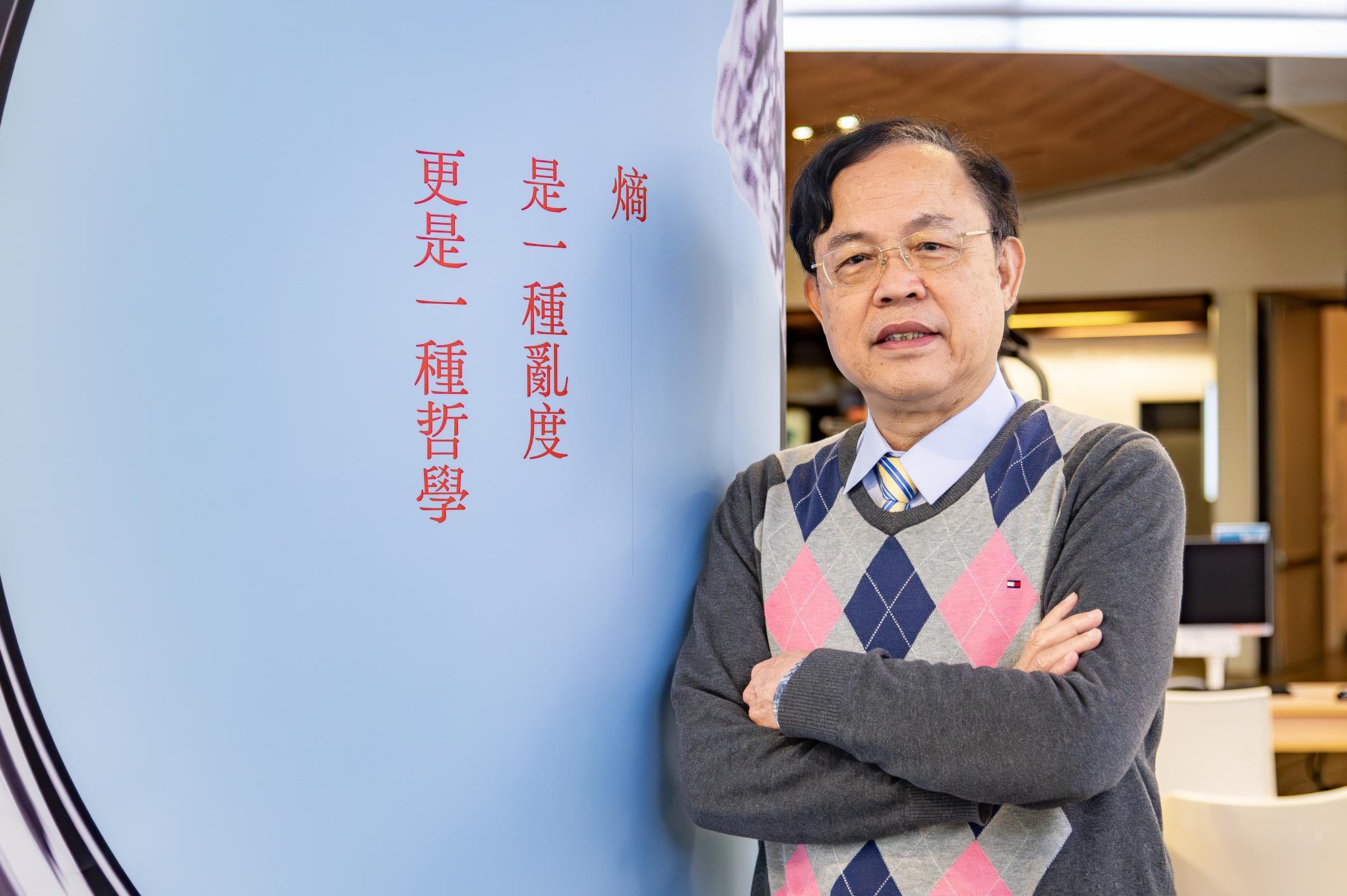
Jien-Wei Yeh (葉均蔚), hailed as the “Father of High-Entropy Alloys,” sees entropy as the philosophy of disorder.
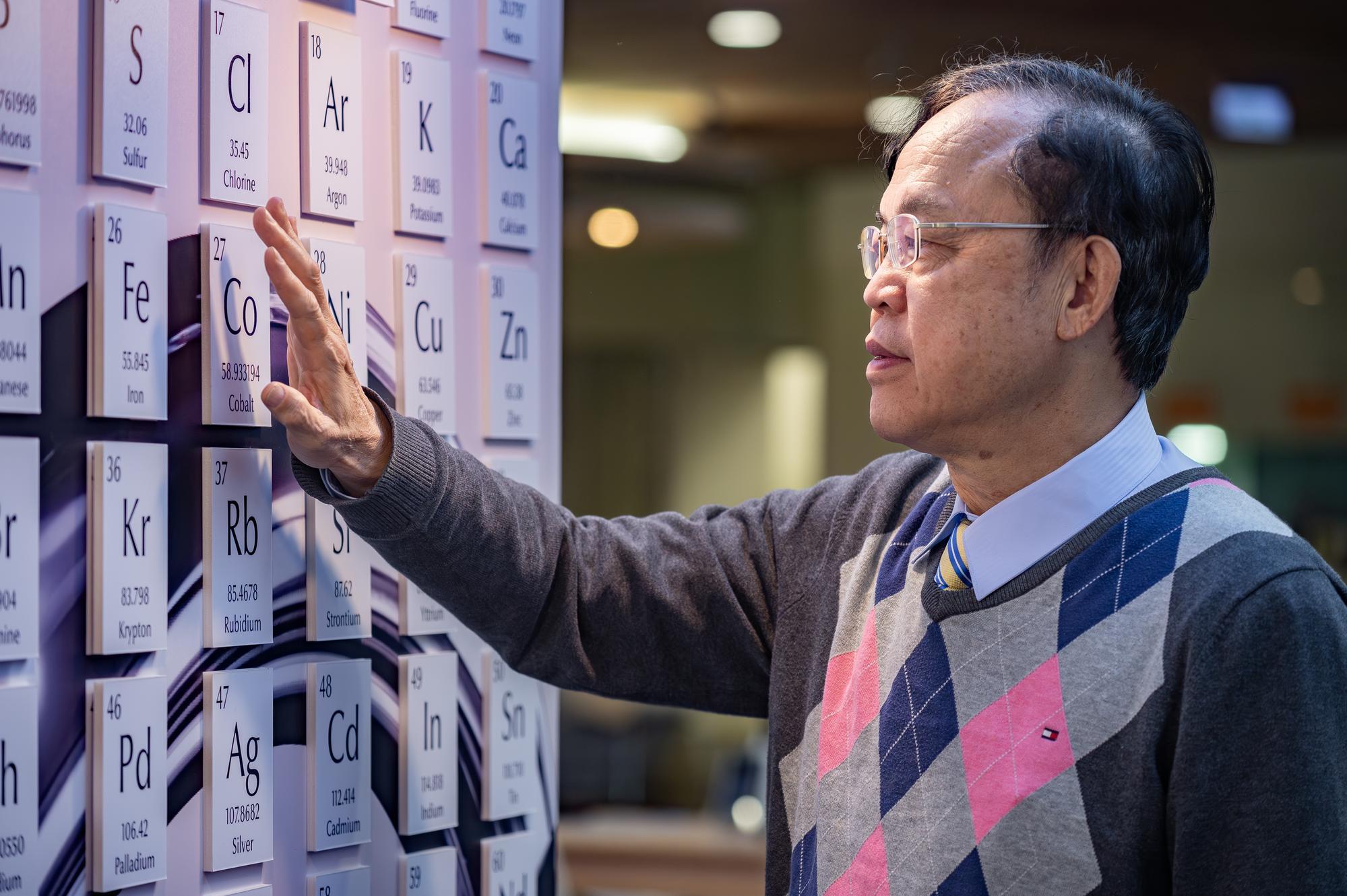
Chair Professor Jien-Wei Yeh (葉均蔚) from NTHU's Materials Science and Engineering pioneered a groundbreaking field known as “Metal Mixology.”
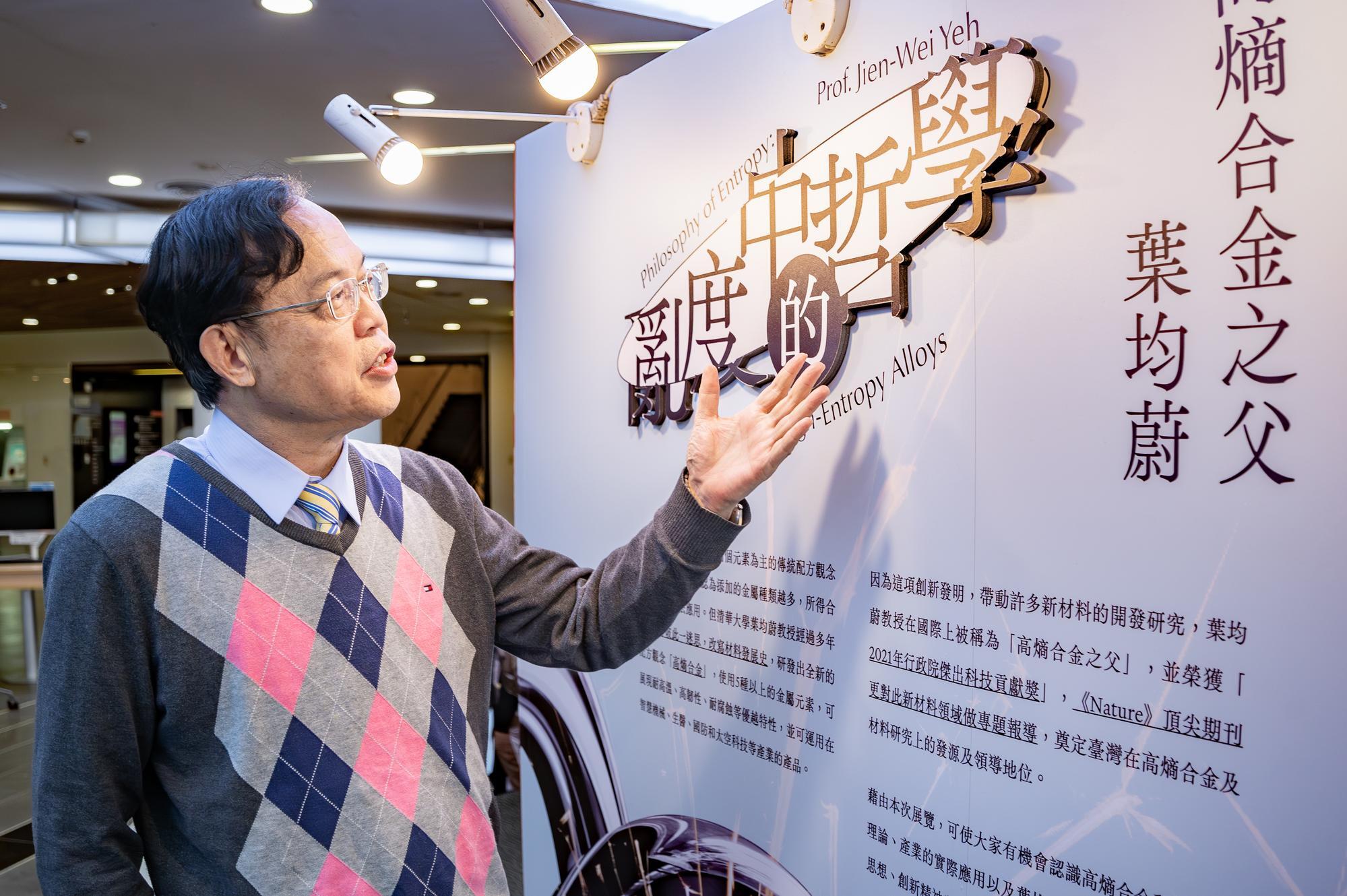
Chair Professor Jien-Wei Yeh (葉均蔚) from NTHU's Materials Science and Engineering is acclaimed as the “Father of High-Entropy Alloys.”
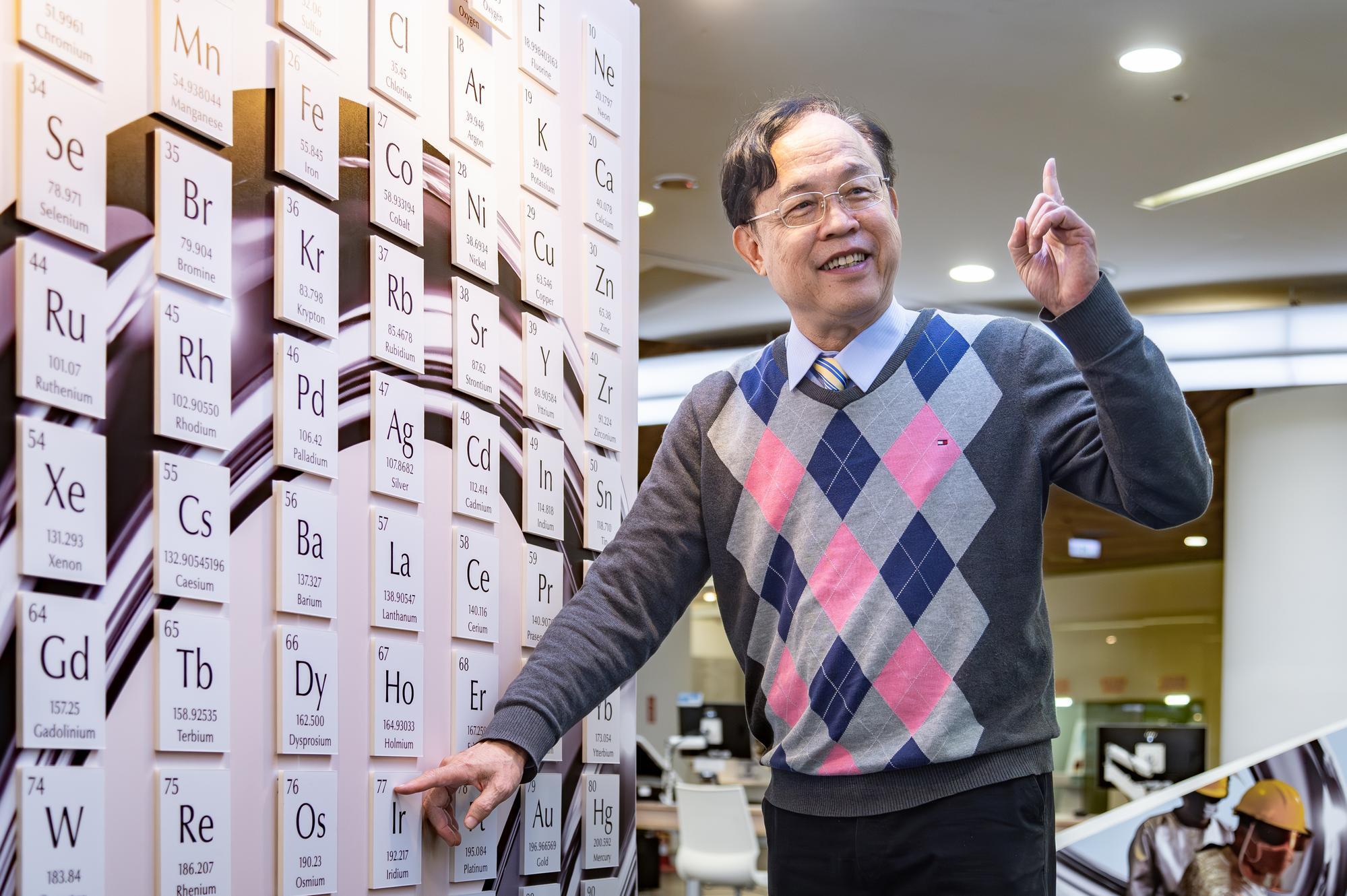
Chair Professor Jien-Wei Yeh (葉均蔚) from NTHU's Materials Science and Engineering pioneered a groundbreaking field known as “Metal Mixology.”
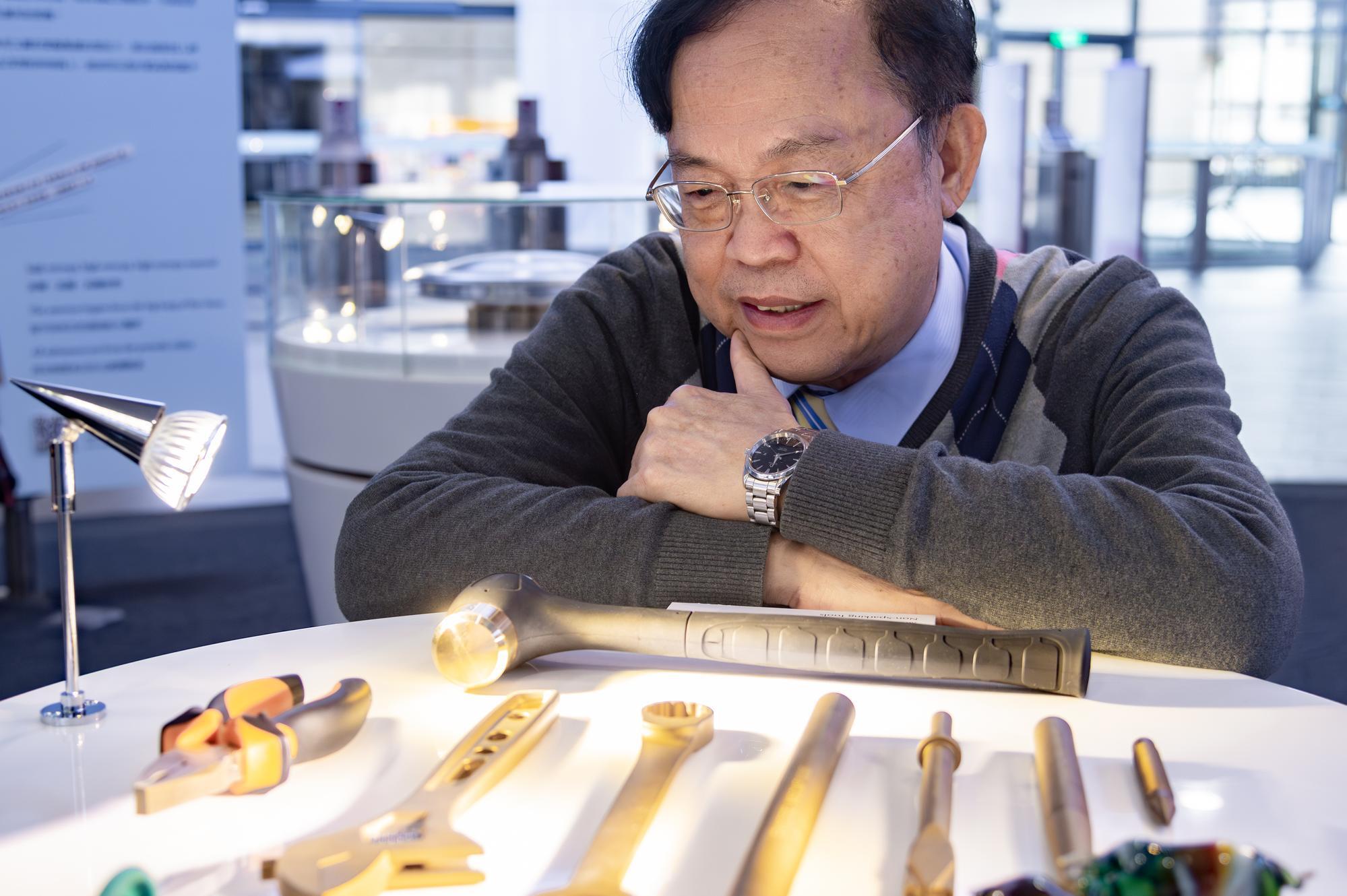
Chair Professor Jien-Wei Yeh (葉均蔚) from NTHU's Materials Science and Engineering has innovated several potential products, including spark-free and non-toxic high-entropy alloy hand tools for environments containing combustible vapor, gas, and powder, such as chemical plants, mines, and gas stations.
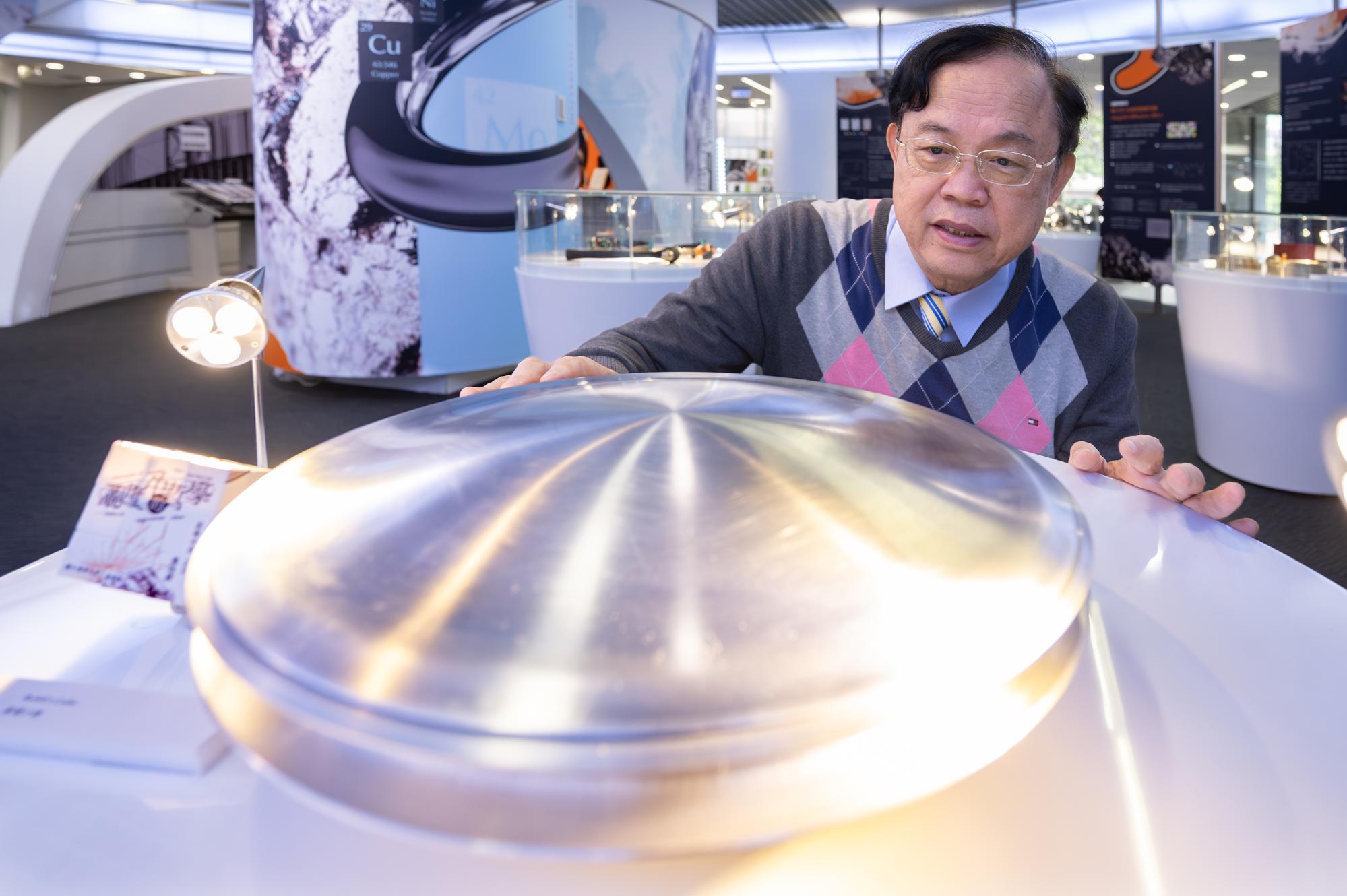
Chair Professor Jien-Wei Yeh (葉均蔚) from NTHU's Materials Science and Engineering aims to develop high-entropy alloys and room-temperature superconducting materials that are stronger and temperature-resistant, aspiring to fulfill his dream of inventing a flying saucer.







